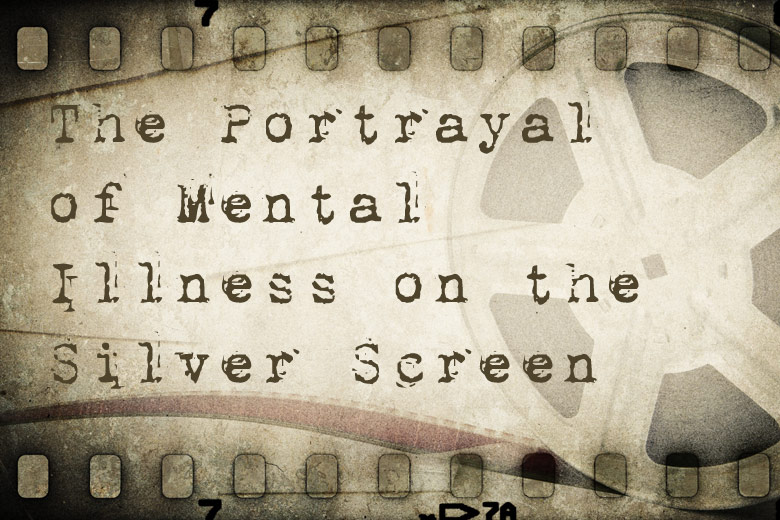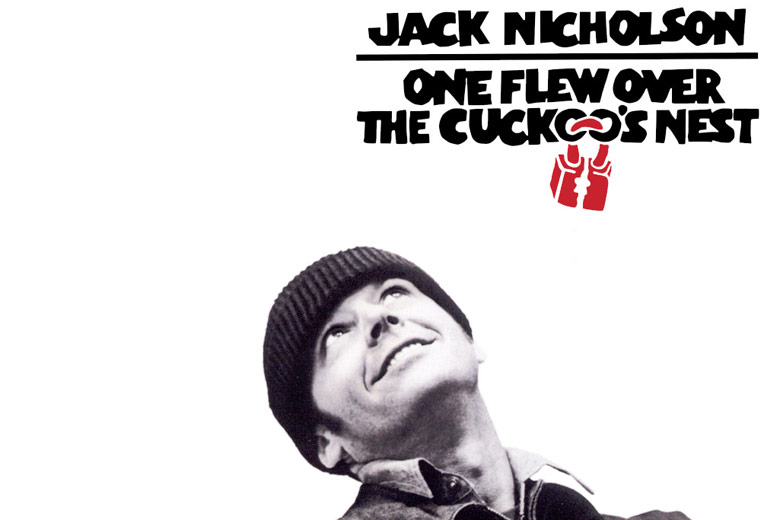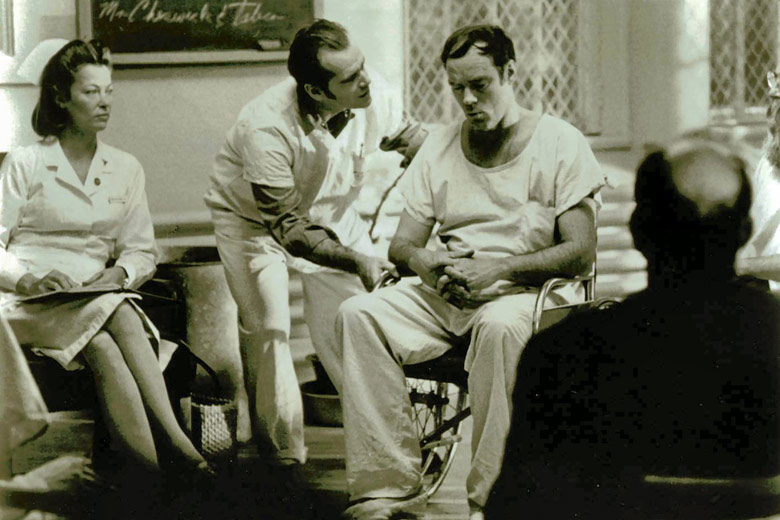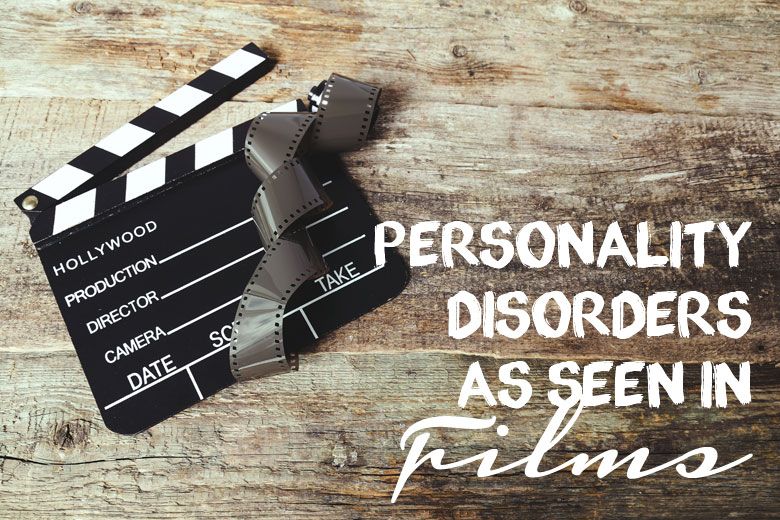A note from Tine: Welcome to another edition of Tim Talks! For those who are new to Beautyholics Anonymous, Tim Talks is a new series on the blog where my husband, Tim, will be sharing his knowledge to help raise mental health awareness. Tim is a psychiatrist who works in metro Melbourne. His area of interest is child, adolescent and youth psychiatry.
I’m really excited for today’s post because when Tim and I were planning his content for Tim Talks, he came up with this topic and I was immediately intrigued. This is the post I’ve been waiting for since we started Tim Talks.
Enjoy!

It’s that time of the year when there is a lot of excitement around the movie and TV industry, with such glamorous award events as the Golden Globes and the Oscars. As Tine would know, I am a huge fan of the silver screen; I find that movies and TV shows serve as an outlet to immerse oneself into an alternative reality even though they are but brief moments.
Ever since I entered into the field of psychiatry, one of the fascinations I hold about the movie world is the portrayal of mental illness on the big screen. Like it or not, our views and perceptions are influenced to a degree by what we view in the media. I think we can learn a lot about mental illness from the movies, but one caveat is that, due to the dramatising of films and TV shows, the depiction of mental illness can be somewhat skewed or portrayed quite contrary to reality.
I thought it might be interesting to discuss some contemporary films, characters in TV shows and some classic movies, whilst offering some context to the elements of psychiatry in them. I will not go into detail of the films and TV series as some readers might start hurling abuse for the spoilers if they have not viewed any the movies below yet. 🙂
A Beautiful Mind

This is a drama depicting John Nash (played by Russell Crowe), a brilliant mathematician known for his development of the game theory, who experiences a debilitating psychotic illness that is schizophrenia. Scenes from the movie go into graphic details of treatments such as insulin shock therapy. The movie gives an accurate impression of how one can be shrouded in delusions that seem so real to Nash involving the Cold War conspiracy, and how it starts to envelope all domains of his life.

However, the film used many imaginary figures, which is termed visual hallucinations, to give support to his delusional beliefs. This is very uncommon in schizophrenia; people with psychotic illnesses commonly experience mis-interpretations of their surrounding environment. An example would be feeling that others were conspiring against them, when they have smiled or gestured in a certain manner. The reality is this could be a non-related event, but the psychotic person will place special significance and relevance to themselves.
Before the advent of antipsychotic medications, there were very limited treatment options for psychosis. Insulin shock therapy, which in the movie was administered to Nash, is no longer an accepted treatment of choice due to the questionable usefulness of the treatment as well as the medical risks associated with it including prolonged comas resulting in brain damage and death. The overarching principle of such treatment was to induce brief periods of coma with regular injections of insulin, with an average treatment course spanning about two months. It is unfortunate and tragic that in the quest for a better understanding of treating psychosis that there have been some harmful treatments that were instituted in the past.
Homeland

A very popular TV series that most would be familiar with is Homeland. Carrie Mathison (played by Claire Danes), a CIA operations officer and one of the main characters in the series, is referenced in the series as suffering from bipolar disorder. There are some aspects that seem to be consistent, with Mathison experiencing elevations in her mood and mood fluctuations, pressured speech, with significant irritability and impulsivity especially when she has not ceased her medications, which later resulted in her being hospitalized and receiving electro-convulsive therapy at the end of the first season.

It is slightly questionable whether her treatment, which included clozapine, was necessarily the first-line treatment in bipolar disorder. Clozapine is an anti-psychotic medication that is more commonly used in treatment-resistant schizophrenia, although it also has some mood stabilizing properties. Generally more common mood-stabilizers for bipolar disorder include lithium, sodium valproate and some of the newer antipsychotic medications such as olanzapine.
The TV series depicted the electro-convulsive treatment quite accurately, in that it was administered in a setting where resuscitation equipment is available. It is a modified form of electro-convulsive treatment, which means that anaesthetics and a muscle relaxant are provided before a brief current is administered. The muscle relaxant serves to minimize any potential harm from the seizure can cause to their arms or legs. A mouth block is set in place to protect Mathison’s airway.
Electro-convulsive therapy is still a treatment option, but there are safeguards in place, such as the need to apply for its treatment under the Mental Health Tribunal in Victoria under the Mental Health Act, to justify its use after other treatment options have been exhausted.
One Flew over the Cuckoo’s Nest

A classic film which was released in the 70s starring Jack Nicholson, this film portrays how psychiatric institutions serve to be a punitive and abusive force under Nurse Ratched. The film also depicts the use of electro-convulsive therapy in its ‘unmodified’ form, thus amplifying the sense of cruelty and abuse as a form of negative reinforcement of deviant behaviour.

The timing of the film’s release coincided with the growing anti-psychiatry movement at that time, in which proponents of the movement felt that psychiatry was an attempt to exact control over people who wouldn’t conform to the societal values. I must admit that I was aghast when I discovered that homosexuality was considered a mental illness in that era. The field of psychiatry is becoming more progressive and patient-focused, and it can only do so by learning from some of its past mistakes.
I hope you’ve enjoyed this post. I will revisit this topic in the future, but in the meantime, if you have not watched the above films or TV series, do check them out and let me know your thoughts about them.
Until next time, I wish you good mental health.













HOMELAND!!! I’ve always wanted to ask you if what was depicted was accurate but I always get distracted by handing you the wine list and making you pick a wine for us 🙂
This is a great post – I love the comparison. You should offer your consultancy services to the producers to get them to stop feeding us fibs 😛
Tim: No worries LeGeeque, always happy to do the wine selection 🙂
I think the film industry has to amplify or dramatize their characters to captivate the audience, but I wonder if they do actually consult with mental health clinicians. I would love to put my hand up for that if there are any takers 😛
Loved this! I’m so glad to see how much has changed in the field of psychiatric treatments. Such a great insight into the minds of those with mental illness versus the portrayal of them in films. I was shown a simulation of what a person living with schizophrenia goes through when they’re not on meds. The voices etc. Shit. It was actually pretty scary. You should watch Birdman Tim & Tine. I think Michael Keaton’s character has a mental illness too. Very interesting!
Norlin recently posted..Health & Lifestyle: Keeping Your Moods & Health In Check
Tim: Thanks Norlin 🙂 There is a clip on youtube about a simulation called Mindstorm, which was created in mid 2000s for increasing awareness of schizophrenia, as you have described. It is a daily tormenting experience, which impacts very negatively on their level of functioning in relationships and educational/vocational pursuits. I will certainly look out for Birdman, Michael Keaton won the actors award in the golden globes, I’m sure it will be interesting 😛
Hi Tim, if u don’t mind my asking, what’s ur take on the various mental problems shown in criminal minds?
Sometimes the killers are legally sane but often they have OCD, DID, are schizophrenic, or otherwise unstable. Or they’re just straight up psychopaths, unable or uninterested in empathy. Do u think the limited time we have with these characters leads the shows writers to make caricatures of their problems? I mean at least 80% of them have some kind of childhood trauma.
Also what about dexter? I haven’t watched it but I think the main characters a psychopath.
I also once saw an episode of I think it was law and order, where a lawyer with schizophrenia stabbed a man while off his meds, then made an almost successful legal argument (when he was forced back on his meds) that it wasn’t him who killed the man, because I’ve was effectively another person when schizophrenic or something like that. I have no idea what it was called but it was interesting to see him try to fight not to be put in a mental institution because he hated taking the meds.
Tim: Hi Hexia, I plan to actually do a write-up on mental health in the forensic setting further down the track, so stay tuned for that. I think with Criminal Minds, there seems to be times where they refer to offences relating to ‘psychotic break’ or ‘OCD’ quite loosely, with limited evidence to support it in the episodes. However, it is quite a common denominator for perpetrators of crime to have experienced significant trauma in their early experiences that shape how they view the world and significance they place on their identity.
On Dexter, great series bar the ending (I won’t spoil it for you) Dexter Morgan is quite a convincing psychopath, but his character development is also quite interesting.
I don’t think I watched the episode you were referring to in Law and Order, and I am not very familiar with the legal framework, but I wonder if he was referring to the term ‘Mens Rea’, a Latin term for ‘the intending mind’. If he had committed a crime without being aware of the consequences of his act due to mental illness, this serves as a mitigating factor, and the court then may request the sentence to be served in mental institution for him to receive appropriate treatment.
I think a lot of people forget that mental illness, along with anything else up on the big screen, has to be depicted as a lot more dramatic than it presents a lot of the time, just the same as love affairs, jobs, getting a coffee – ‘real life’ is somewhat boring, and doesn’t make for great screenplay really, there has to be something out of the ordinary to it. Therefore when its something we ‘don’t talk about’ in everyday life, like mental illness, people can get a slightly misinformed view of what that illness actual is or how it generally presents. I guess its a bit like STDs or infections – when was the last time Thrush, Chlamydia or HPV was portrayed in film? But AIDS, Gonorrhea or Syphilis? That’s meaty, that’s film worthy….if we took that, we would think that any STD would involve pustules, pain, and be long term or overly complicated perhaps (ok – not a great example, I’m generalizing massively there as well, but hope it explains the points). A yeast infection just isn’t as exciting (“oh, Heavens, what will I do! I’m itchy like mad…..oh, thank heaven’s Priceline has some Canestean in stock!” Hmm – short plot line that one!).
But hopefully it gets us talking all a bit more about it, and that can only be a good thing.
Everyone should be made to watch One Flew Over imho – omg the tears! Literally sobbing as hard as I ever have at the end of that film – so so so tragic.
Hilary recently posted..Space saving utensils
Tim: Hi Hilary, I actually like your analogy of STDs; the ‘silent’ or STDs where there are less symptomatic manifestations like candida (thrush) and chlamydia, which incidentally account for a bigger proportion of STDs, is overshadowed by HIV, gonorrhoea and the such. I think it ties in nicely with how conditions like anxiety disorder (unless there is a significant panic component) don’t get alot of mention in the big screen. Btw, that line with the yeast infection was gold, lol.
I can’t seem to find the link at the moment, but I will upload when I have accessed it, it is a list of the movies that also includes non-English films that portray mental illness well.
😀 Thank you – proud blushing face 😀
I would be super super interested if you know of any Asian-based films Tim – that’s not my forte, but have a specific interest at the moment. Foreign language is absolutely fine. Cheers 😀
Tim: Hi Hilary, there are two films worth your consideration: To Live (1994, Director Zhang Yi Mou, Chinese), and Maborosi (1995, Director Hirokazu Koreeda, Japanese) Enjoy 🙂
Great post and an intriguing read, Tim. Who could forget the character, Nurse Ratched in “One Flew Over The Cuckoo’s Nest”. She terrified me far more than any of the patients depicted! It was such powerful and yet disturbing film, as was A Beautiful Mind. Look forward to your next post.
Tim: Glad that you enjoyed the post Vicki 🙂 Nurse Ratched was truly very domineering and abused her authority to maintain order and control in the institution. I always wondered if they picked that name to rhyme with wretched.